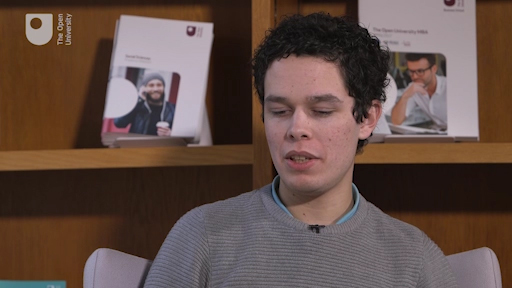5 Personal testimonies
While not everyone with autism is able to describe their experiences, an increasing number of personal accounts provide insights which both complement and differ from ‘outsider’ insights. Parents may also provide deep insights which are not available without these close bonds. Remember, though, that individual accounts of autism are just that. For instance, some autistic individuals describe their thinking style as highly visual. But this does not necessarily mean that visual thinking is a general trait in autism. Next you will consider some parental and personal accounts.
Activity 6 Learning from personal accounts
Read these two passages and listen to the interview extract. Make a few notes on similarities and differences between the accounts. For instance, are the accounts given by autistic individuals or by parents? What interests and difficulties do they talk about?
Jessy’s social understanding remained, and remains, radically incomplete. Such simple lessons. ‘We can’t ask them to move because they were there first.’ The difference between irritation and hurt feelings. Making sense of people, ‘grasping the general significance of situations’. What the autistic adult, like the autistic child, finds hardest of all.
What is it like to have a mind that picks ‘remembrance’ out of the newspaper yet must struggle to comprehend the most ordinary vocabulary of social experience? What is it like to have to learn the myriad rules of human interaction by rote, one by one? By rote, because the criterion of ‘how would I feel if’ is unavailable, since so much of what pleases (or distresses) her, does not please others, so little of what pleases (or distresses) others pleases her.
I must mention that the boy loved to watch the different calendars of different rooms and then recall the numbers. He also compared them. He thus spent a lot of time, gazing at the numbers. He wanted to know what they meant. He found a kind of pattern in them. He wondered how the figures bent and straightened up, curled and sometimes broke!
Listen to the following extract from a recorded interview with Dr Wenn Lawson discussing his autism with Dr Ilona Roth (Lawson and Roth, 2011). Note that Wenn was living as a woman at the time of this interview.
Transcript
Answer
Tito Mukhopadhyay (a young boy in 2000) and Wenn Lawson (an adult) contribute their personal reflections, while Clara Claiborne Park speaks for her adult daughter Jessy.
Tito and Wenn Lawson mention passionate engagement with particular topics (calendars, numbers, insects, machines) while Clara mentions Jessy’s attention to detail.
Clara Claiborne Park and Wenn Lawson both mention problems and frustrations of understanding the subtleties of language, the rules governing social situations, and the difficulty of taking other people’s feelings into account.
Finally, in this clip meet Alex, who will describe his experiences of autism at various points in the module.

